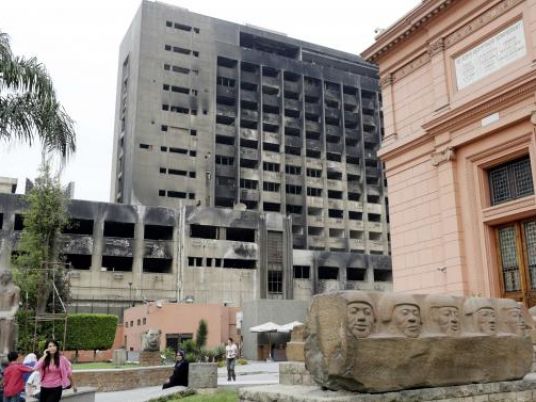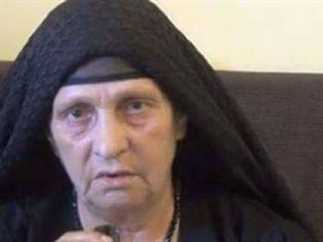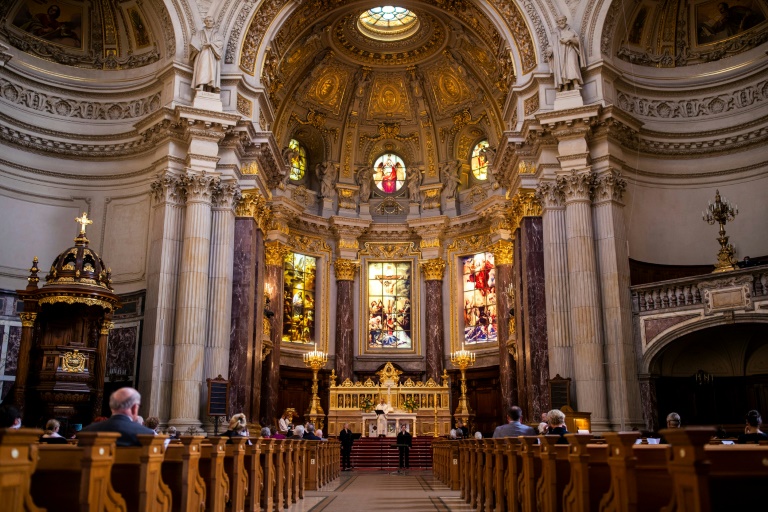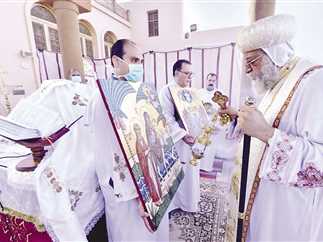In the midst of the abundant flow of reports about electoral violence and allegations of vote rigging, news about the pope’s backing of the Wafd party nominee stood out by raising questions about a potential shift in the Church’s decades long support of the ruling National Democratic Party.
The church has made no official announcement concerning what party appeared on the pope’s ballot. However, Naguib Gobraiel, the church’s lawyer, confirmed that the ruling party’s reluctance to field a considerable number of Coptic candidates, coupled with violent clashes erupting in southern Cairo, must be the driving force behind Pope Shenouda’s III decision to refrain from backing the ruling party.
“It is not logical to vote for a party that opened fire at [Copts], marginalized them and let them down,” Gobraiel told Al-Masry Al-Youm.
The Coptic minority constitutes nearly ten percent of Egypt's population of 80 million. Copts frequently complain of religious discrimination including legal restrictions on the construction of churches and an alleged ceiling on the number of Copts permitted to attain high public office.
This week's poll came on the heels of sectarian violence that rocked Giza last week.
In an unprecedented move, thousands of Copts took to the streets to hurl Molotov cocktails and stones at the police in protest over the suspension of construction at a local church. Police responded with tear gas and rubber bullets that killed two Christians.
For his part, the 87-year-old pope blamed the violence on local authorities, reportedly warning them in his weekly sermon, “God is patient but when He gets angry, His anger can be scary.” A few days after uttering these words, the Coptic patriarch cast his ballot in support of the Christian candidate Rami Lakkah who ran under the liberal Wafd party’s banner for a professional seat in a northern Cairo district, affirmed Gobraiel.
According to Karima Kamal, a Coptic columnist, Pope Shenouda’s ballot marks a new episode in the evolving relationship between the regime and the church. To Kamal, the violence that broke out in Upper Egypt earlier this year precipitated a relative fallout between the two parties.
“The Church used to have the feeling that the ruling regime and the NDP were protecting it against the Muslim Brotherhood and Salafis,” said Kamal, adding that the church once encouraged Copts to support the NDP. “But what happened in Naga Hammadi showed that this protection does not exist.”
The year began with a drive-by shooting that left six Copts dead outside a church in the southern province of Naga Hammadi. Worshippers were coming out of the Coptic Christmas eve mass last January when violence broke out.
Additionally, the run-up to the poll was marred by Coptic disappointment with the NDP nomination of only 10 Copts on its official list. Adding fuel to the fire, the NDP fielded Abdel Rahim al-Ghoul, an NDP member of the outgoing parliament whom Copts implicated in last year’s violence in Upper Egypt.
“The nominations were quite comical,” said Kamal. “Copts do not have the same loyalty to the NDP anymore and the Pope cannot any ask them to vote for the NDP any longer.”
“I expect the relationship between the church and the regime to witness more divisions in the coming period,” she added.
Yet, for Kamal Zakher, a prominent Coptic writer, the pope’s ballot does not hold political overtones. “It is not about him voting for Al-Wafd, it is more about him voting for a Christian candidate. This vote cannot have any political dimensions.”
The pope is too “diplomatic” to escalate tensions with the ruling regime, contended Zakher.
“The pope has faced many crises since 1971 until 2010. This makes him cautious,” added Zakher.
The state has co-opted The Coptic Church since the 1952 military coup. The Patriarch Kirollos VI was held to represent the Coptic community and promoted loyalty to the state among his followers.
In 1971, Shenouda III was ordained pope near the same time Anwar Sadat became president. By the time of Sadat’s assassination, the relationship between the regime and the church witnessed a drastic shift.
In response to Sadat's policies that emboldened Islamist groups and culminated in the eruption of sectarian violence, the Church began to embrace anti-establishment discourse.
Eventually, Sadat put the pope under house arrest at the Monastery of Saint Bishoy where he remained for five years. The experience of detention marked a turning point in the Pope's strategy vis-à-vis the state, according to experts.
Upon his release by Mubarak in 1981, Shenouda repaired relations with the ruling regime and expressed Church support of President Mubarak in presidential races.
“Any attempt to reproduce the scenario of 1981 by any of the two parties [ruling regime and church] will lead to the eruption of violence on a large scale,” said Nabil Abdel Fattah, an expert with Al-Ahram center for Political and Strategic Studies.
“Neither the state nor the church want things to reach that level,” added Abdel Fattah.
In the midst of sectarian strains, the US State Department issued an annual report on religious freedom in Egypt earlier this month. The report lashed out at Egypt for discriminating against religious minorities, including Copts.
The criticism came at a time when the ruling regime is preoccupied with Western concern over electoral violations that marred this week's parliamentary race.
"The moment is ripe for Copts to exercise pressure," said Abdel Fattah. He was reluctant, however, to pledge Copts will succeed in gaining increased civil rights. "The state will heed few of the Coptic demands ahead of the presidential elections."




